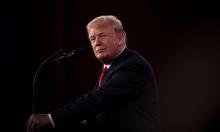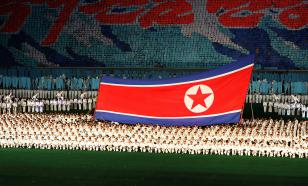Wasghington to be criticized at UN climate change summit in Buenos Aires
Over 1500 experts and politicians from 189 countries discuss global warming scenario after Russia ratified the Kyoto Protocol. Bush is the main target of delegates for his anti-ecological policy.

Thanks to Russia’s formal approval, the Kyoto Protocol, aimed to curb the growth in greenhouse gases and stop the climate change process, will enter into force on 16 February. To discuss strategies to strengthen the pact, climate experts and politicians meet in Buenos Aires since Monday at the Tenth Session of the Conference of Parties (COP 10), under the umbrella of the Convention on Climate Change.
During the first week of talks, over 1,500 delegates from 189 nations put Washington’s officials into the defensive, as Bush administration refuses to ratify the Kyoto protocol. Excuses were not welcomed at the summit and the alternative policies exposed by the US delegation were considered not sufficient.
Environmentalists have also attacked US claims that America is doing as much to curb global warming as any other nation that signed the Kyoto deal. They say that the new researches with hydrogen fuel cells will not bring positive results in 20 or 30 years. Moreover, they say the hydrogen often comes from fossil fuel sources, especially coal, which would further increase gas emissions.
Experts will discuss until 17 December key issues on the environmental sphere as the impacts of, and vulnerability and adaptation to, climate change, mitigation of climate change and the organization of intergovernmental process. The mood is better than the expected as the Kyoto Protocol, moribund until last month Russia’s ratification, is now a reality and strategies to make it progress can be discussed.
Analysts believe that the real interest may lie outside the conference chambers. Russia's decision to ratify the Kyoto Protocol means that on the fringes delegates can finally dare to address the big question - what needs to happen next if the impacts of global warming are to be kept within manageable bounds.
However, as Washington keeps silence about an eventual ratification of the pact, the focus will be on developing countries, which have already signed the Protocol, but have not put in force programs to reduce gas emissions. According to scientists, gas emissions have to be reduced by 60%, and action from developing nations will be necessary to achieve that goal.
The main objection coming from these countries is why should they make the efforts if the country which pollutes the most –the US- does not? To obtain their support, the EU is ready to bear several initiatives which it believes can play a role, notably its emissions trading scheme which opens for business in January. It is also expected to offer technical assistance to developing nations to tight control over their gas emissions
COP 10 will mark the 10th anniversary of the entry into force of the Framework Convention on Climate Change, which will serve as a central theme for the meeting. In addition to the accomplishments of the past ten years and future challenges, discussions at COP 10 will highlight a range of climate-related issues including, the impacts of climate change and adaptation measures, mitigation policies and their impacts, and technology. Participants will also take stock of the entry into force of the Kyoto Protocol.
As sessions begin in Buenos Aires, Greenpeace and other environmental groups hold separate meetings to discuss largely the same issues, and street protests in favour of the reduction of gas emissions. In the center of Buenos Aires, these groups installed a symbolic Noe’s Ark, warning about the future of the humanity if right actions are not taken. A “singing in the rain” George W. Bush, could also be seen on Wednesday, as a way to warn Argentineans that most of the heavy rains they are suffering are related to the climate change due to global warming.
Buenos Aires
Subscribe to Pravda.Ru Telegram channel, Facebook, RSS!




